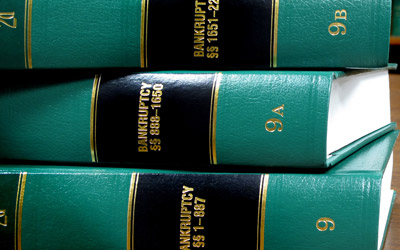FAQ'S
Covered in this Article:
- What is the role of the attorney for a consumer debtor in a Chapter 7 case?
- Can I file bankruptcy without an attorney?
- Should I save money and use a paralegal service, or an internet service to prepare my bankruptcy case?
1. What is the role of the attorney for a consumer debtor in a Chapter 7 case?
The debtor’s attorney performs the following functions in a chapter 7 case;
- Analyze the amount and nature of the debts owed by the debtor and determine the best remedy for the debtor’s financial problems.
- Advise the debtor of the relief available under both chapter 7 and chapter 13 of the bankruptcy laws, and of the advisability of proceeding under each chapter.
- Assemble the information and data necessary to prepare the chapter 7 forms for filing.
- Prepare the petitions, schedules, statements and other chapter 7 forms for filing with the bankruptcy court.
- Assist the debtor in arranging his assets so that he can retain as much of them as possible after the chapter 7 case.
- Filing the chapter 7 petitions, schedules, statements and other forms with the bankruptcy court, and, if necessary, notifying certain creditors of the commencement of the case.
- If necessary, assisting the debtor in redeeming certain personal property and in setting aside certain mortgages or liens against exempt property.
- Attend the meeting of creditors with the debtor.
- If necessary, preparing and filing amended schedules and certain statements and other documents with the bankruptcy court in order to protect the rights of the debtor.
- If necessary, attending the discharge and reaffirmation hearing with the debtor and assisting the debtor in reaffirming certain debts and in overcoming obstacles to the granting of his Chapter 7 discharge.
2. Can I file bankruptcy without an attorney?
Although it may be possible for some people to file a bankruptcy case without an attorney, it is not a step to be taken lightly. The process is difficult and you may lose property or other rights if you do not know the law. It takes patience and careful preparation. A chapter 7 also referred to as a straight bankruptcy case are much easier. Very few people have been able to successfully file chapter 13 also known as a wage earner case on their own.
3. Should I save money and use a paralegal service, or an internet service to prepare my bankruptcy case?
The document preparation services also known as “typing services” or “paralegal services” involve non-lawyers who offer to prepare bankruptcy forms for a fee. The problems with these services often arise because non-lawyers cannot offer advice on the difficult bankruptcy cases. Moreover, the paralegal services provide no help to you once the case has been filed. There are also many shady operators in this field, who provide erroneous and they defraud consumers. There are many bankruptcy lawyers who are very competent and who charge very reasonable fees.
A word to the wise, always hire a lawyer to file for bankruptcy. I know that it sounds tempting to save money and just hire a typing service. However, there are endless scenarios wherein your bankruptcy case can turn into a disaster. Adversary cases can be filed to try to block your case. Bank accounts can become seized. Car repo’s have to be undone. Negotiations over child support arrears need to be made. A trustee can recommend a conversion of the case to a chapter 13. The trustee can find problems with the debtors schedules and expenses. There also can be fraud issues in a case. As you can see there are many possible pitfalls that can arise if you file.
In summary, many things can simply go wrong in bankruptcy. Filing for bankruptcy is not like filing for your taxes. Once you file for bankruptcy, many legal rights and legal actions are triggered. Your creditors become involved in the case. A debtor who represents themselves most often simply becomes overwhelmed. Many trustees don’t have the patiens to deal with pro se debtors. Quite often, a pro se debtor’s case will be dismissed. There is no way around it. Get a lawyer and don’t be cheap!






